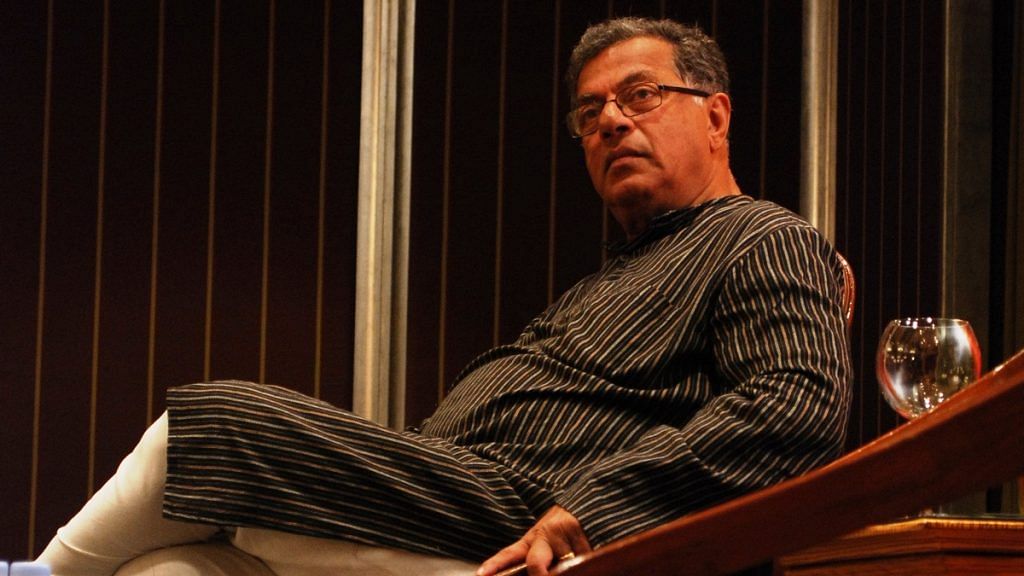Bengaluru: Award-winning actor, playwright and writer Girish Karnad passed away at his residence in Bengaluru Monday. He was 81. The Jnanpith awardee succumbed to multiple-organ failure.
Born in Maharashtra on 19 May 1938, Karnad was a multi-faceted personality. He completed his Bachelor’s degree from Karnatak University. In 1963, he completed his Master’s from Oxford University, where he studied philosophy, politics and economics.
Considered one of India’s distinguished playwrights, Karnad wrote his first play in 1961. Called Yayati, it was based on a mythological king. He was still a Rhodes scholar at the Oxford University when this play was widely well-received by the audience and critics.
Three years later, in 1964, Karnad wrote Tughlaq, another play based on the story of the 14th-century king Muhammad bin Tughluq. His subsequent plays, Hayavadana in 1972 and Nagamandala in 1988, made Karnad a name to reckon with among top playwrights in the country.
A versatile actor and filmmaker, Karnad won several National awards for screen-writing, writing and directing films in Kannada and Hindi. In 1970, he debuted as an actor and screenwriter in the movie Samskara, which was based on a novel written by U.R. Ananthamurthy. The film won the first Golden Lotus award for Kannada cinema.
Karnad’s 1972 film Vamsha Vriksha, which he co-directed with B.V. Karanth, won the Best Film and Best Director awards, while his famous movie Kanooru Heggadithi (1999) also bagged the Best Director award. He also directed the movie Utsav in 1984, an adaptation of the 4th-century Sanskrit play Mrichchhakatika.
He has been conferred with several prestigious awards — Padma Shri in 1974, Padma Bhushan and Sahitya Akademi award in 1994, and Jnanpith award in 1998.
Karnad, who had vehemently criticised attacks on journalists and writers across the country, was given security by the Karnataka Police after his name was found to be in the list of ultra right-wing activists that had planned to kill him.
After the murders of several writers and rationalists such as Gauri Lankesh, M.M. Kalburgi, Govind Pansare and Narendra Dabholkar, Karnad had joined the movement called #MeTooUrbanNaxal.
